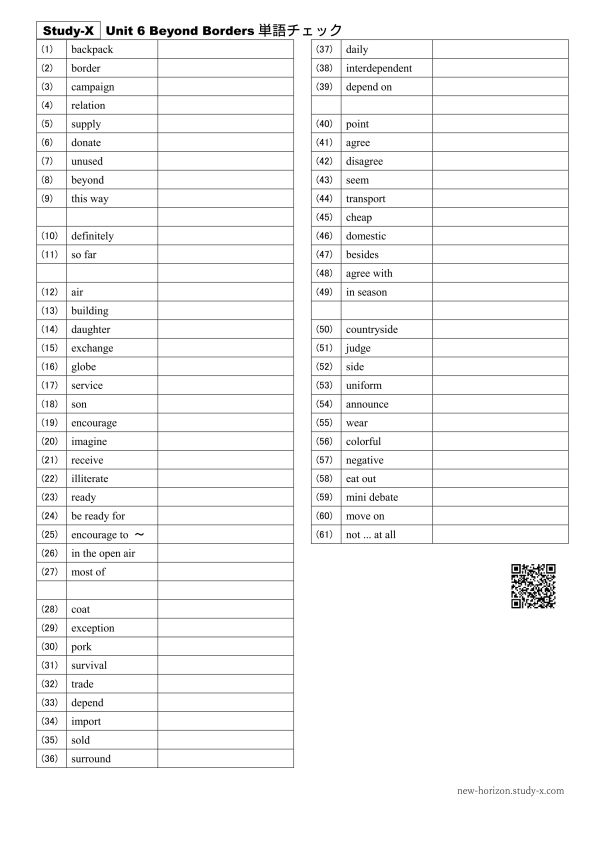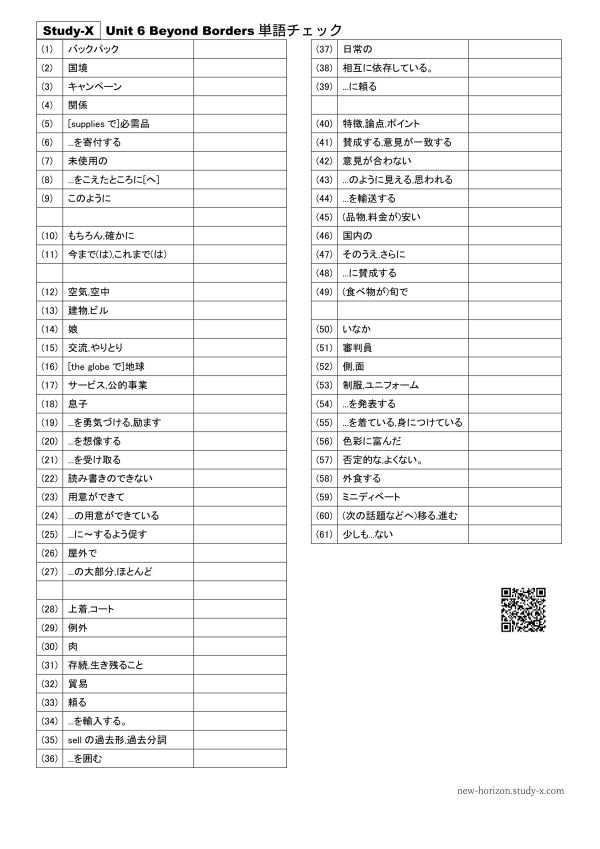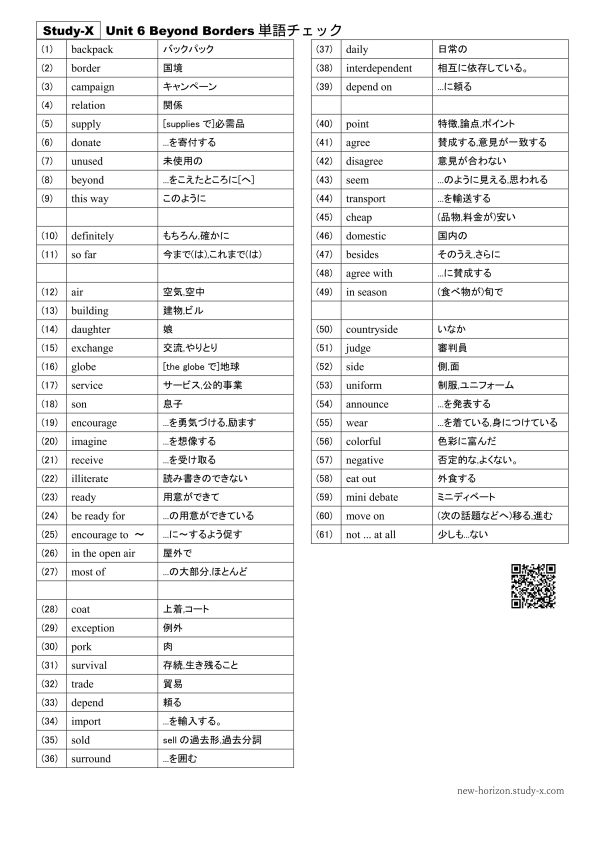- ニューホライズン Study-X
- 中1
- 中2
- 中3
- Unit 0 Three Interesting Facts about Languages
- Unit 1 Sports for Everyone
- Unit 2 Haiku in English
- Unit 3 Animals on the Red List
- Let’s Read 1 A Mother’s Lullaby
- Unit 4 Be Prepared and Work Together
- Unit 5 A Legacy for Peace
- Unit 6 Beyond Borders
- Let’s Read 2 Power Your Future
- Let’s Read 3 A Graduation Gift from Steve Jobs
- SITEMAP
- Study-X 総合サイトへ
Unit 6 Beyond Borders

単語 単語チェック
Scene 1
School backpacks travel overseas
"I wish I could go to school."
"I wish I had pens and notebooks."
Children in some parts of the world feel this way.
We are running a campaign to help them.
Send us unused school supplies, and we will give them to those children.
You can also donate your old school backpack.
It can have a new life overseas.
Scene 2
What would Meg do if she were a Japanese student?
Kaito: Have you ever heard of groups that collect Japanese school backpacks?
They send them overseas.
Meg: I've never heard of them, but it's a great idea.
Japanese school backpacks are cool.
Kaito: They send them to children in Afghanistan.
So far, more than 200,000 backpacks have been sent.
I've already sent mine.
Meg: Wow. If I were a Japanese student, I would send my old backpack.
Kaito: Actually, you can help them by donating other things, like pencils and notebooks.
Meg: Really? That's great.
I'll definitely do that.
Read and Think 1
What is the main point Kaito is trying to tell us?
Imagine your life without school.
If you didn't study, you couldn't read or write.
If you were illiterate, you couldn't get information through books or websites.
In some parts of the world, there are children living like this.
Children like these in Afghanistan receive schools backpacks from Japan.
It makes them happy.
It also encourages their parents to send their sons and daughters to school.
Most of the backpacks come with pens and notebooks.
So students will be ready for school.
In areas with no school buildings, children can use the backpacks as desks in the open air.
In these ways, school backpacks from Japan have been changing children's lives.
School backpacks from Japan travel to Afghanistan.
They help the school children there.
Other goods and services travel from one country to another all around the globe.
These exchanges connect and help us all.
Our borders are only lines on a map.
Read and Think 2
Like most countries, Japan depends on foreign trade for its survival.
Many things that we see every day come from overseas, such as food and clothes.
For example, one-third of the chicken that we eat comes from other countries, like Brazil and Thailand.
If we didn't import chicken from these countries, fried chicken would be quite expensive in Japan.
We depend on foreign countries even more for beef and pork.
Also, about 90 percent of our clothes, shirts, pants, and coats, for example, are imported from China and other Asian countries.
Actually, many products that are sold by Japanese companies are made in other countries.
Electronic devices are no exception.
We're surrounded by imported products in our daily lives.
Our relationships with foreign countries are becoming more and more interdependent.
It's necessary for us to continue helping each other — beyond our borders.


